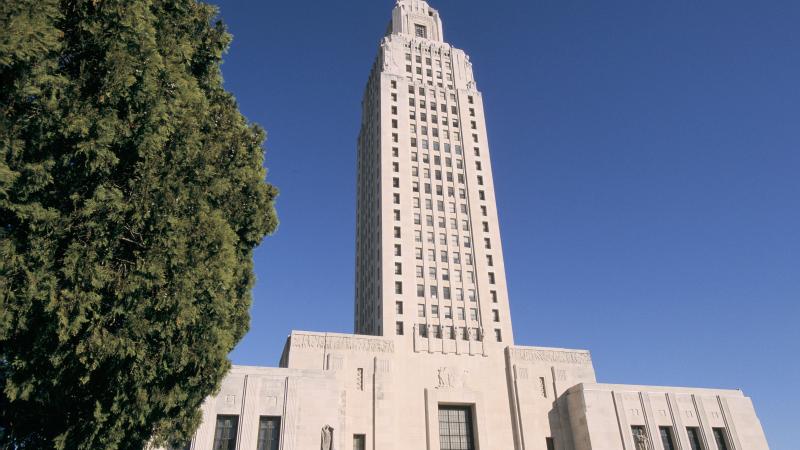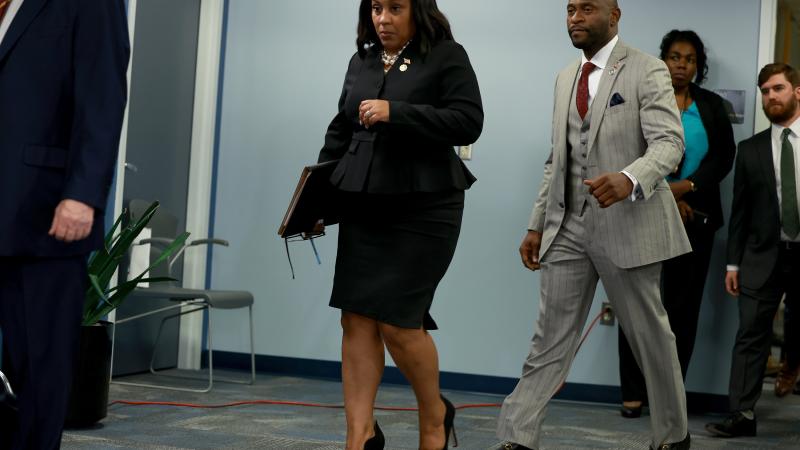Youngkin eyes nuclear for Virginia, some remain skeptical
Virginia Gov. Glenn Youngkin unveiled a new energy plan that seeks to expand the use of nuclear energy in the commonwealth, but there is still some skepticism about the idea. The commonwealth only has four nuclear reactors in two power plants – one in Louisa County
Virginia Gov. Glenn Youngkin unveiled a new energy plan that seeks to expand the use of nuclear energy in the commonwealth, but there is still some skepticism about the idea.
The commonwealth only has four nuclear reactors in two power plants – one in Louisa County and the other in Surry County. However, these reactors provide nearly one-third of the state’s energy and about 95% of its zero-carbon, clean energy.
Youngkin intends to expand on nuclear power by building a small modular nuclear reactor in the southwestern part of the state within the next 10 years. He also plans to turn the state into a “nuclear hub” and support research and innovation by working with Virginia-based nuclear companies BWXT and Framatone.
“The Commonwealth should take advantage of this incredibly competitive position on the forefront of nuclear energy research and development to become the nation’s leader in [small modular reactor] technology,” the governor’s plan read. ”Accordingly, this Plan advocates for the development of the first commercial SMR in the U.S. in Southwest Virginia and calls for developing spent nuclear fuel recycling technologies that offer the promise of a zero-carbon emission energy system with minimal waste and a closed-loop supply chain.”
SMRs produce about one-third of the energy of normal reactors, but are cheaper to make and easier to replicate. However, there are currently no SMRs in the United States, so the cost effectiveness of this system compared to others is still debated.
Tim Cywinski, a spokesperson for the Virginia chapter of the environmentalist group, Sierra Club, criticized the plan.
"Governor Youngkin's plan is irresponsibly reliant on a type of nuclear technology that has never proven to be reliable,” Cywinski told The Center Square.
David Kemp, who is a research analyst at the libertarian Cato Institute, who focuses on energy and environmental regulation, was also not optimistic about nuclear energy.
Kemp told The Center Square nuclear power is not cost competitive with coal or natural gas because “construction costs are astronomical.” He said the idea behind the small modular nuclear reactors is to bring down the costs and to standardize the design to build them in factories. Yet, he cautioned that the state would likely need to build a lot of them before it becomes a less costly alternative to larger reactors.
“Most people are being a little bit overly optimistic about their viability,” Kemp argued.
Former Gov. Ralph Northam signed a law that forces the state to rapidly reduce its carbon footprint until ultimately shutting down all carbon-emitting energy sources. Although Youngkin opposes this legislation, it’s not likely that he has the votes in the Senate to repeal the bill at this time.
Kemp said nuclear has been seen as an alternative to renewable energy sources, such as wind and solar, because renewables tend to be unreliable and reliance on them has led to energy blackouts and brownouts. He said that wind only works when it’s windy and solar only works when the sun is out, which means there will always be uncertainty about how much energy those sources will produce. Nuclear, he added, is more reliable, but much of the concerns rest in the initial construction costs for the facilities.
Rather, Kemp urged the state to push toward natural gas as a cleaner and less costly alternative to coal and a less costly alternative to nuclear.
Youngkin’s energy plan received support from many Republican lawmakers, but faced opposition from many Democratic lawmakers.














